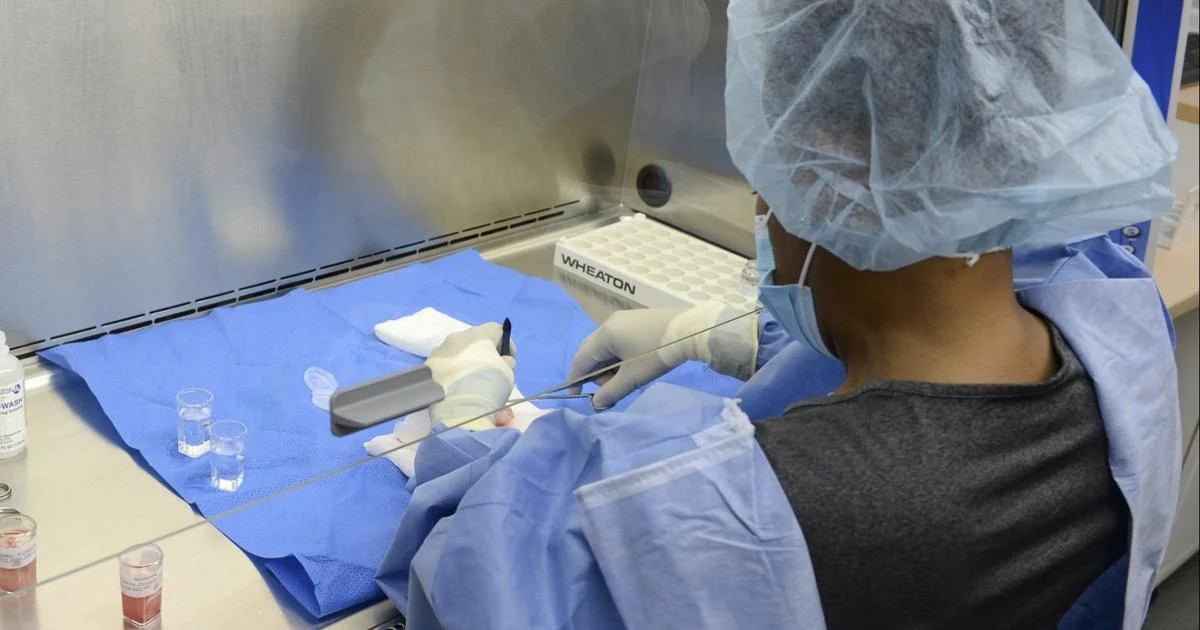Copyright lestimes

…to create around 2000 jobs Moroke Sekoboto THE Lesotho National Development Corporation (LNDC) has attracted M1.7 billion (USD76 million) investment from the Chinese poultry farming and manufacturing of advanced poultry equipment company, Qingdao Intelligent Poultry Investment Development. According to the LNDC, the investment presents a strategic opportunity to establish Lesotho’s integrated poultry value chain, spanning breeding, feed production, slaughtering, processing, and export. Upon completion, the project is expected to generate annual sales revenue of about M322 million, create 887 direct jobs and over 1000 indirect jobs, and remit taxes that will contribute to national revenue. “The project is a vertically integrated value chain, which will create jobs at various stages of production. While the exact figures cannot be ascertained as yet, the project is expected to generate 887 direct jobs at full capacity, in addition to 1000 indirect jobs in logistics, retail, and related sectors,” LNDC told the Lesotho Times yesterday. “Job categories include: research and development services, farm and hatchery operators, feed-mill and processing-plant workers, quality-control technicians, veterinarians and biosecurity officers, administrative and logistics staff, processors, wholesalers, retailers, and end consumers for guaranteed market access. “Basotho will fill the vast majority of these roles, especially in operations, administration, and logistics, while Chinese experts will initially occupy key technical and management posts for training and technology transfer.” According to the Food and Agriculture Organization (FAO), Lesotho imports 21,000 metric tons of poultry products annually. “The establishment of this project will therefore significantly reduce import dependence, increase domestic production efficiency, and stimulate related sectors such as feed production, veterinary drugs, packaging, and logistics. The project will also foster industrial clustering, thereby boosting the agriculture and services sectors’ contribution to Gross Domestic Product (GDP) and expanding Lesotho’s agri-industrial base.” LNDC said the project will establish domestic capacity to produce 10 million broilers per year (21,500 tons of meat), enough to meet most of Lesotho’s national demand and replace imports. The local integrated production system, from breeding to processing, will ensure self-sufficiency and a stable supply, thereby directly reducing import volumes. “The project represents an estimated total investment of M1.7 billion (USD 76 million), primarily directed toward fixed assets and operations across the poultry value chain, from breeding and feed production to slaughtering, processing, and export,” LNDC explained. The LNDC emphasised that Basotho will remain the primary beneficiaries of the project. “The deal structure allocates a 70% equity stake to LNDC, ensuring national control and profit retention within Lesotho. Part of the shares will be held in trust for Basotho poultry producers to enable them to acquire shares through the Maseru Securities Market once the project starts operating optimally.” LNDC said it had collaborated with the Ministry of Labour and Employment to enforce agreed quotas for local employment and ensure the implementation of skills transfer mechanisms for specialised skills components. The project will also contribute to the sustainable development agenda of the country by creating a decent work environment for Basotho. LNDC further stated that the project’s comprehensive industry chain model—encompassing breeding, hatching, feed production, farming, slaughtering, processing, logistics, and marketing—will establish a permanent technical and industrial foundation within Lesotho. It will facilitate the institutionalisation of training in collaboration with the Ministry of Agriculture and Food Security (MAFS), perhaps through the Agricultural College, and gradually develop out-grower farms. Technology transfer from Qingdao will ensure the adoption of advanced and certified practices in farming automation, cold-chain logistics, and processing hygiene. “Qingdao is contractually obliged to train key personnel during both construction and operations. The project plan also encompasses an all-employee training system that covers operations, technical skills, management, and corporate culture. Critical staff will receive training on equipment operation and safety, with strict competency assessments conducted prior to appointment,” LNDC said. Furthermore, the LNDC, together with the Ministry of Labour, will develop a clear roadmap to ensure the enforcement of skills transfer programmes and the gradual exit of foreign technical experts. “Smallholder farmers will be integrated through the out-grower (contract farming) model, which will operate under a “five-unified management system”. This includes: unified supply of chicks and feed, unified technical services and disease prevention and unified slaughter and marketing arrangements. “This model guarantees quality inputs, predictable markets, and shared logistics for smallholder farmers. The LNDC will provide financial support through its existing partnership with banks for working capital via the Partial Credit Guarantee Scheme.” LNDC said its partnership with the Ministry of Agriculture and Food Security (MAFS) will also see ministry officials form part of the project—as well as other local institutions such as the National University of Lesotho (NUL) and the Lesotho Agricultural College, which will strengthen the project through their research and development departments. “Under the “five-unified” framework, LNDC and the joint-venture company will control procurement and sales, ensuring transparent pricing based on feed and production costs. Centralised processing and marketing will eliminate intermediaries, reducing the risk of payment delays and ensuring stable offtake contracts with local farmers. “The out-grower model, popularly known as contract-farming, explicitly aims to integrate smallholder cooperatives as satellite producers. By standardising inputs and slaughtering through the central facility, the project will link farmer groups and cooperatives into the formal poultry value chain, strengthening rural participation and income generation. “Qingdao Intelligent Poultry will lead the development of international technical standards, market access, and export-channel development, drawing on its experience in the Chinese and global poultry markets. LNDC, leveraging its government and trade promotion role, will facilitate export permits, customs coordination, and trade agreements through the Ministry of Trade, Industry and Business Development (MTIBD) to access the SADC, SACU, COMESA, and AfCFTA markets.”



